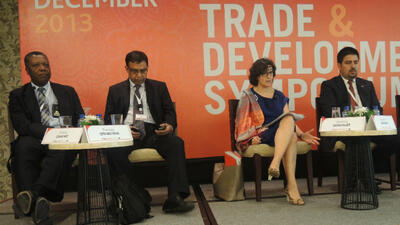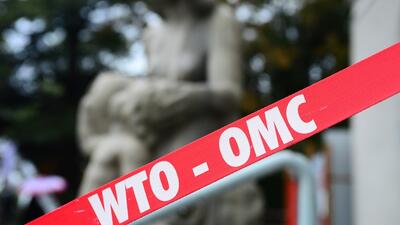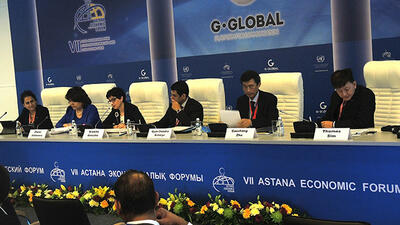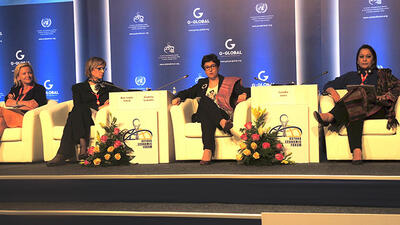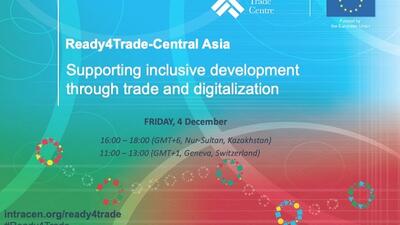

Lowering Kazakhstan's carbon emissions in trade
ITC developed carbon training for policymakers and businesses in Kazakhstan to support country’s low-carbon development strategy
A five-day long training launched yesterday in conjunction with the 2022 ESG Investment Forum and the Kazakh Green Academy's Fourth Climate Dialogue at the Astana International Financial Centre supports the country’s commitment in carbon neutrality and its low-carbon development strategy by 2060.
Over 100 stakeholders ranging from ministers, enforcement agencies, industries and businesses, signed up for the training programme.
At the request of Kazstandart, the national standardization agency of Kazakhstan, the International Trade Centre (ITC) developed the training content to support Kazakhstan’s stakeholders in understanding the rationale and technicalities of carbon-related policy initiatives as well as its implications for Kazakhstan’s economy. It will prepare policymakers and businesses in responding and leveraging relevant international initiatives.
In specifics, the programme addresses the methodologies of various carbon initiatives, including the EU CBAM, as well as the links between Kazakhstan’s carbon policies and trade strategies. The training is delivered by MIT Professor Michael Mehling, a leading expert in the field of climate policy design and implementation. Guest lecturers include Benjamin Görlach, Senior Fellow of the Ecologic Institute and Daniele Pernigotti, technical expert on ISO standards on greenhouse gases.
Gabit Mukhambetov, Director General of Kazstandart said at the launch: “The problem of climate change is of a global nature, so the whole world is tightening its carbon regulations. This applies both to the strengthening of domestic response measures in Kazakhstan, and the policy of the entire world community. I would like to express my gratitude to ITC. I believe the recommendations developed during the training will be in demand and will serve the development of a low-carbon policy.”
Aidar Kazybayev, CEO of AIFC Green Finance Centre added: “The government brings the national emissions trading system closer to that of Europe given the current global trends in carbon border regulations and related transitional climate risks. It intends to make full use of international mechanisms and instruments of international carbon markets and offset trade, including the efforts made by AIFC with its platform. The key is to ensure understanding the climate agenda implications at the policy level, as well as the importance of adhering to international carbon-related standards while having local verification competencies recognized internationally. This will ensure continued country competitiveness.”
“The development of an Emission Trade System in Kazakhstan is in progress and needs improvement to be in line with ISO standards,” said Bakhyt Yessekina, Director, Green Academy of Kazakhstan. “The support from our government, key trading partners and international organizations is critical. We hope to discuss the priorities and future directions with representatives from the government, academia, business and NGOs on the training and the upcoming Climate Dialogue.”
Jean-Sébastien Roure, Head of Trade Policy Unit at the International Trade Centre concluded: “Carbon policies have become an important element in trade and development. Governments are increasingly introducing environmental regulations to reduce carbon emissions to mitigate their impact on climate, while businesses and investors allocate funds to support sustainable trade practices for better competitiveness. With the strong expertise from our experts and the shown interest, I am confident that we will identify approaches and strategies that will benefit all stakeholders in Kazakhstan.”
Background
Kazakhstan has joined international efforts to address climate change and prioritize carbon-neutral strategies. At the same time, the national economy’s traditional structure and the role that extractive industries and fossil energy resources play, require systemic adjustments and national policies that will modernize and diversify the country’s economic strategy. Such adjustments and policy developments, in turn, will be instrumental in enabling Kazakhstan to increase export opportunities and accelerate their transition to sustainable trade.










